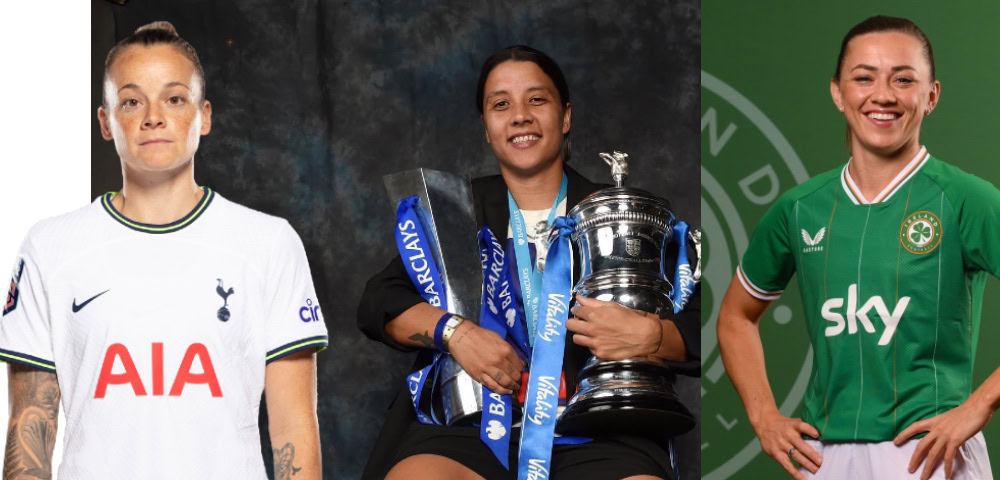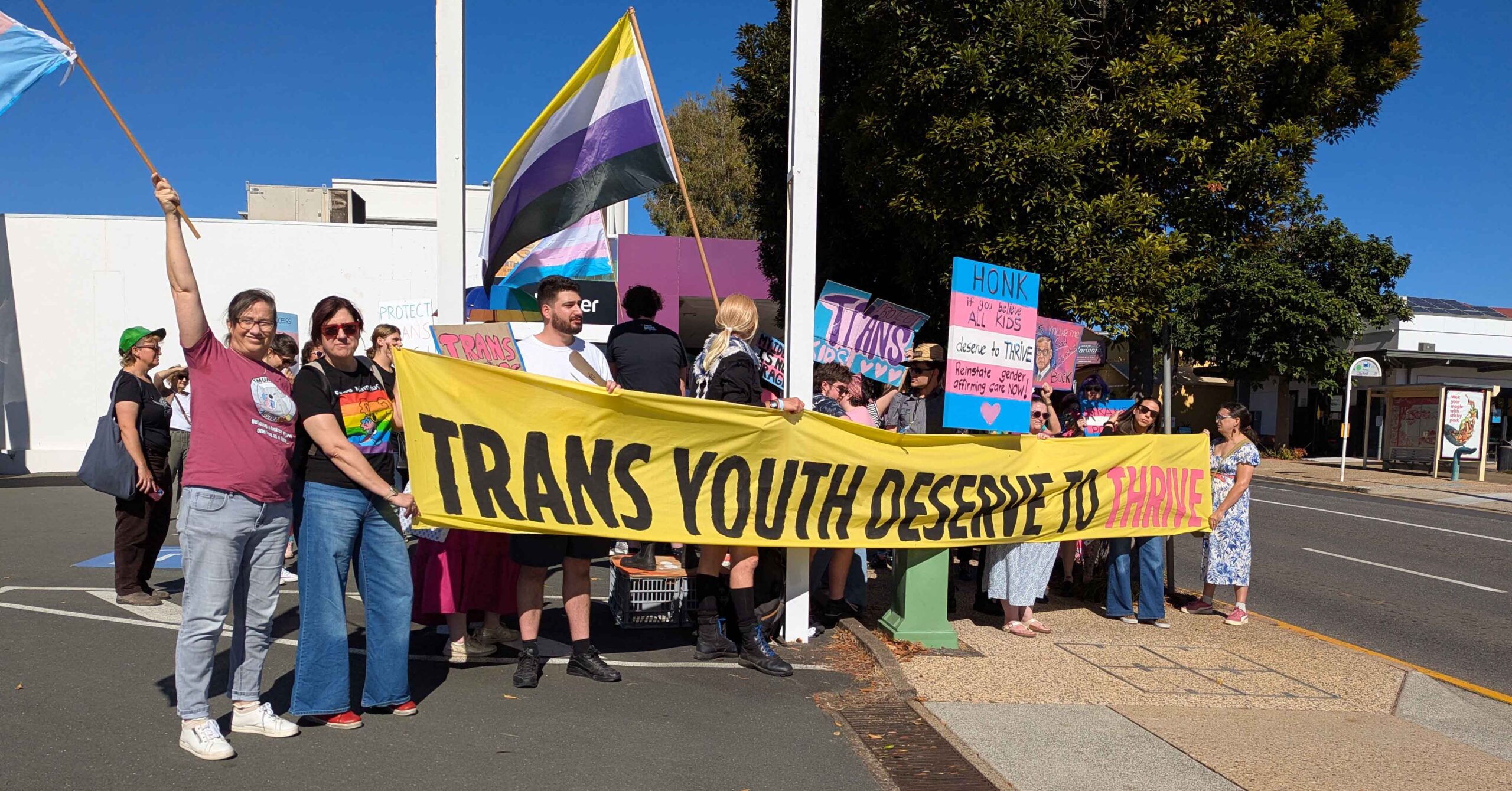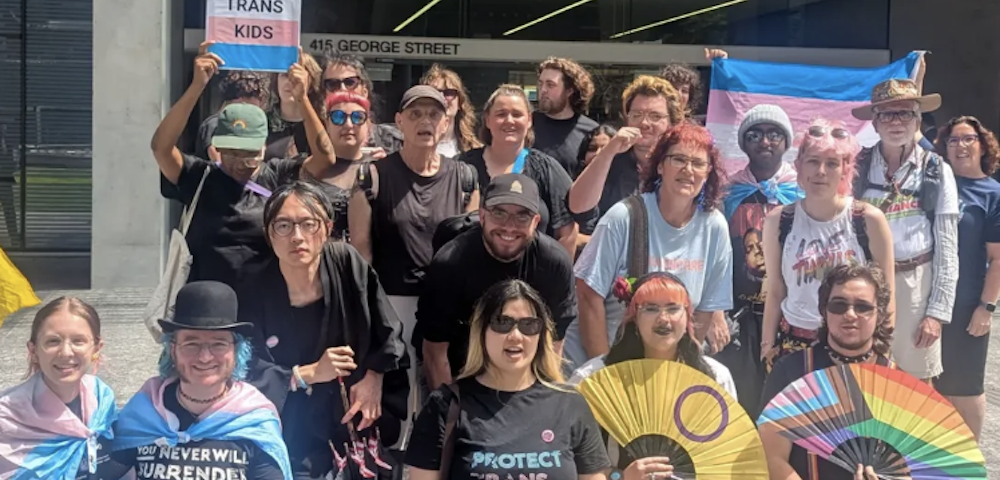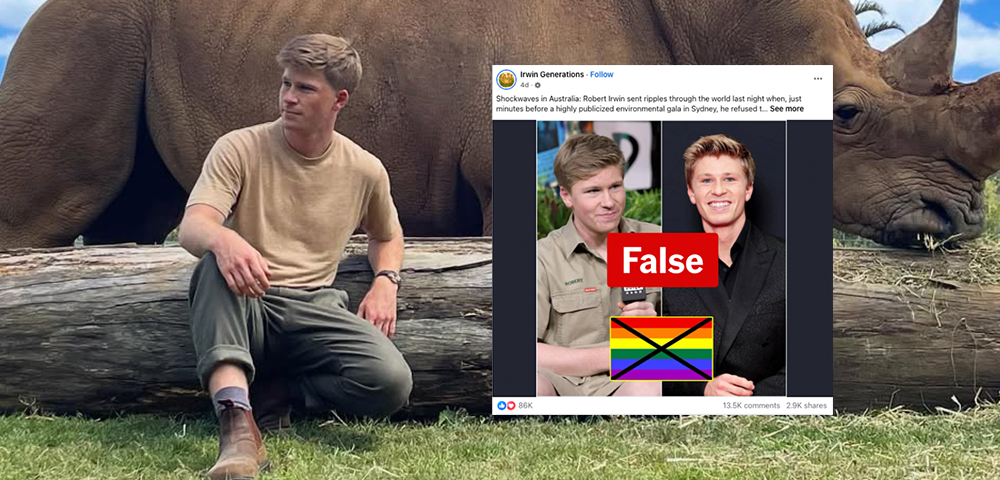
Australia, Brazil Have Most Out Gay Players At 2023 Women’s World Cup

A record 87 out LGBTQI athletes, including eight team captains, will be competing in the upcoming FIFA Women’s World Cup to be held in Australia and New Zealand this July.
There are 736 women’s players in this year’s World Cup. This means that more than 1 in 10 of the female soccer players competing this year identify as gay, bisexual, queer or non-binary.
This number is more than double the 38 players who were out at the last Women’s World Cup, in 2019.
According to the LGBTQI sports site, OutSports, while the number of teams in the tournament has grown by a third (from 24 to 32) over the past four years, the number of out athletes has more than doubled, which “reflects the growth of acceptance”.
Most of the publicly out athletes come from Europe, the Americas and the two host nations, Australia, and New Zealand, which have more favourable laws for LGBTQI people in comparison to places like the Middle East, Africa, and Asia.
No Out Gay Male Players
Currently, Brazil stands out as the most openly LGBTQ+ team in the tournament, with at least nine out athletes – consisting of over a third of the team. Australia and Ireland, both have eight openly LGBTQ athletes, followed by Sweden with seven. Australia has three additional out players in reserves.
Eight of the 32 women’s teams also have a team captain who identifies as LGBTQI.
Founder of OutSports Cyd Zeigler spoke to NBC News about the number of out female athletes in comparison to the lack of out male soccer players at last year’s Men’s World Cup, stating that there were more out players competing at an elite level for women than men.
“This is true across basketball, ice hockey and almost every other sport. The WNBA has over 25% out women. That higher presence of out athletes naturally creates an environment where more women feel comfortable being out. As we say at OutSports, Courage Is Contagious”, Zeigler said.
According to OutSports, at least 186 publicly out gay, lesbian, bisexual, transgender, queer and non-binary athletes competed in 2021 at the Summer Olympics in Tokyo, which was more than triple the number who participated at the 216 Rio Games.
FIFA Bans Rainbow Pride Bands
FIFA has faced criticism in the past for allowing countries with hostile LGBTQ laws to serve as hosts for the tournaments.
Last year, Qatar hosted the Men’s World Cup and threatened sanctions on national teams for wanting to wear rainbow armbands to show support for LGBTQ+ pride. In Qatar, homosexuality is illegal and punishable by up to three years in prison.
Teams participating in the Women’s World Cup tournament will not be permitted to wear the OneLove and rainbow-coloured bands. Instead, eight FIFA-approved armbands with messages including: Unite for Inclusion, Unite for Indigenous Peoples, Unite for Gender Equality, Unite for Peace, Unite for Education for All, Unite for Zero Hunger, Unite for Ending Violence Against Women, and Football is Joy, Peace, Love, Hope, and Passion will be offered as alternatives.
Earlier this month Australian captain Sam Kerr made the tough call to not wear the rainbow captain’s armband during the upcoming Women’s World Cup, to avoid “putting everything at risk”.
“For me it’s not worth the risk; putting the team at risk; putting everything at risk; and there will be multiple opportunities where I get to use my voice for things,” Kerr said.
Brazil Tops Out Gay Players List
The 2023 Women’s World Cup begins on July 20.
Here’s the list of out gay players to look out for at the 2023 Women’s World Cup (Source: OutSports).
Argentina: Lorena Benitez, Vanina Correa, Romina Núñez, Yamila Rodriguez
Australia: Ellie Carpenter, Alex Chidiac, Katrina Gorry, Sam Kerr (Captain) Teagan Micah, Kyah Simon, Emily, Van Egmond, Tameka Yallop. (Reserves: Larissa Crummer, Emily Gielnik, Chloe Logarzo).
Brazil: Adriana Silva, Andressa Alves, Barbara Barosa, Debinha, Kathellen Sousa, Lauren Leal, Leticia Izidoro, Marta, Tamires
Canada: Kadeisha Buchanan, Quinn, Kailen Sheridan
Colombia: Daniela Montoya (Captain)
Costa Rica: María Paula Elizondo, Gabriela Guillén
Denmark: Pernille Harder (Captain)
England: Jess Carter, Rachel Daly, Bethany England, Lauren Hemp
France: Pauline Peyraud-Magnin, Constance Picaud
Germany: Ann-Katrin Berger, Sara Doorsoun, Svenja Huth, Felicitas Rauch, Lea Schuller
Ireland: Diane Caldwell, Sinead Farrelly, Ruesha Littlejohn, Katie McCabe (Captain), Grace Moloney, Aine O’Gorman, Louise Quinn, Lucy Quinn
Italy: Rachele Baldi, Lisa Boattin, Manuela Giugliano, Elena Linari
Netherlands: Kerstin Casparij, Merel van Dongen, Sherida Spitse, Daniëlle van de Donk, Stefanie van der Gragt, Jacintha Weimar. (Reserve: Shanice van de Sanden).
New Zealand: Annalie Longo, Hannah Wilkinson, Michaela Foster, Ria Percival (Captain)
Norway: Anja Sønstevold, Frida Maanum, Gu ro Reiten, Ingrid Syrstad Engen
Philippines: Tahnai Annis (Captain), Angela Beard, Hali Long
Portugal: Dolores Silva
South Africa: Kaylin Swart, Thembi Kgatlana
Spain: Alba Redondo, Irene Paredes, Ivana Andres (Captain), Teresa Abelleira
Sweden: Filippa Angeldahl, Nathalie Björn, Magdalena Eriksson, Jennifer Falk, Lina Hurtig, Caroline Seger (Captain), Linda Sembrant
Switzerland: Ramona Bachmann, Alisha Lehmann
USA: Kristie Mewis, Kelley O’hara, Megan Rapinoe










slay
brazil is so trendy